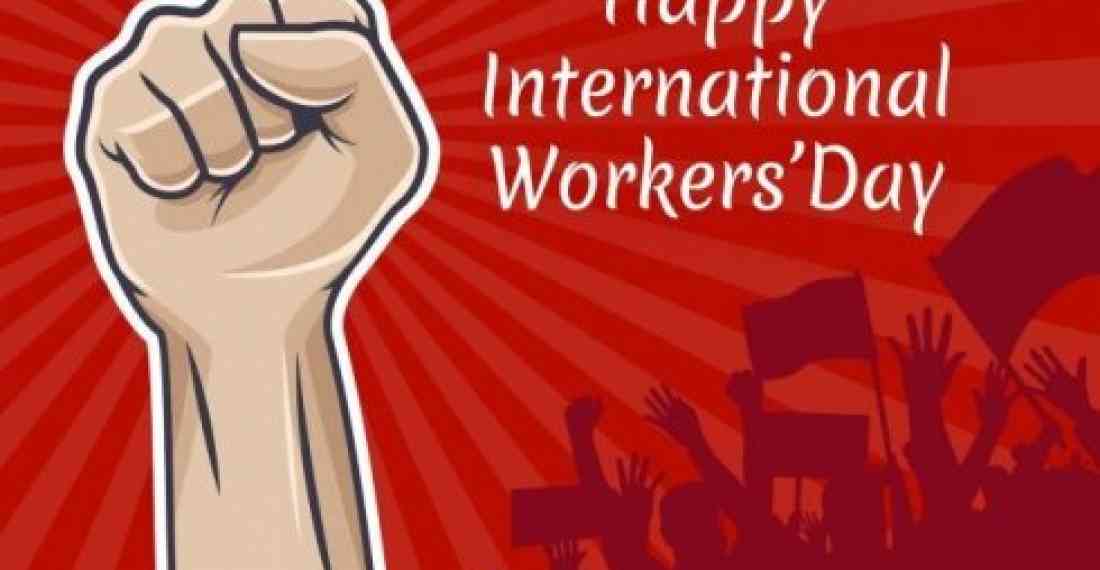
ZIMBABWE, on Thursday, joined the world in celebrating the International Labour Day (Workers Day).
The celebrations were muted as unemployment has grown over the years because of the political and economic turmoil.
However, unionising is still necessary for economic growth and social cohesion.
Formal employment has been on the decline as companies closed shop or restructured.
Many of the new companies, mostly Chinese investments, have poor labour relations and have been allowed to thwart unionism.
On the other hand, the economy is now largely informal, with many people turning to vending, small welding or carpentry projects or joining the tuckshop economy.
Unionising workers in the informal sector has proven difficult.
On average, these new companies have less than five employees who are on zero-hour contracts.
- Call for recognition of unpaid care, domestic work
- Chinese company accused of unfair labour practices
- Feature: Aged people haunted by abuse in Zim
- ZCTU and ILO turn blind eye to pensioners’ plight
Keep Reading
They can be dismissed anytime and usually without any compensation.
The main labour body, Zimbabwe Congress of Trade Unions (ZCTU), held a number of commemorative events across the country, with the main celebrations at Dzivaresekwa Stadium in Harare.
As has become the norm, the event was poorly attended.
Organised labour took a downturn post the 1990s International Monetary Fund (IMF)-sponsored economic structural adjustment programmes.
The forex deregulation allowed companies to spirit away critical foreign currency and some companies even relocated.
The economy took further battering post 2000, when the chaotic fast-track land reform programme commenced.
Zimbabwe was largely an agro-economy.
If the agriculture sector sneezed, the whole economy would catch a cold.
As of 1999, formal agriculture employed over 500 000 workers directly.
The numbers could go to above two million if we added the downstream and connected industries.
These included workers in companies that processed agriculture commodities, formal retail enterprises, fertiliser manufacturing, textile industry and the farm implements sector.
The disruption in organised agriculture was felt across the whole economy.
Banks in farming towns closed, large manufacturing companies like Olivines moved their operations across the borders, yet others restructured to adapt to the new socio-economic conditions.
It goes without saying that many jobs were bled.
The Zanu PF government did not help the situation when it openly encouraged the setting up of rival unions affiliated to the party.
The ZCTU, after facilitating the formation of the opposition political party, the Movement for Democratic Change, had become an enemy of the government.
The fragmentation of the unions weakened the workers.
It made it impossible for workers to speak with one united voice.
With the formal economy falling, the government became the biggest employer in the economy.
It has failed to set the standards for good labour relations.
Zimbabwean workers, both in private and public sectors, are struggling with low wages and high inflation.
The majority of workers earn below US$300 monthly, a figure below the poverty datum line.
A family of five currently needs slightly above US$500 to meet its basic monthly requirements.
University of Zimbabwe law professor Lovemore Madhuku thinks Zimbabwe needs a law to create minimum wages for workers to have a decent life.
Madhuku posted on X (formerly Twitter) that: “Workers Day: it is a day to reflect on how best we may achieve decent livelihoods for the working people of the world. In our case, in Zimbabwe, it is time we have a national minimum wage. Happy Workers Day.”
However, low wages is not the only problem workers face.
Most workers have no pensions, health insurance, job protection or access to an efficient public transport system.
It is interesting to note that the government has changed the law to allow workers to retire at 70 in a country where life expectancy is at 64.
Theoretically and practically, the government is saying most workers will die on the job and not enjoy their pensions.
Many workers struggle to get medical attention when they fall ill.
They cannot afford the medical fees and they do not have medical insurance.
The government has been speaking about universal health insurance for the past 10 years, but nothing much has changed.
Job protection in Zimbabwe is no longer available.
The government has allowed labour broking to flourish.
This has significantly changed the relationship between the employer and employee.
It allows companies to evade things like medical aid, leave days and compensation when employment is terminated.
Last but not least, most workers now walk to work or temporarily reside at their workplaces as they cannot afford public transport costs.
It is a fact that it is the responsibility of both the central and local governments to create and maintain an efficient public transport system.
Considering the foregoing, it is apparent that the labour environment has locally changed.
The workers are back to the colonial era days.
Workers no longer have protection and the government is unwilling to rectify this, hiding behind hollow mantras like “Zimbabwe is open for business”.
Workers have to find their agency.
They have to be like Benjamin Burumbo and Joshua Nkomo, who played crucial roles in organising unions in Zimbabwe in the 1940s.
The unions have put their petty jealousies aside and work together in addressing the immediate problems the workers face today.
Otherwise, a decade later there would be no workers in the traditional sense.
It also remains a fact that IMF prescriptions on the economy have only helped to antagonise the workers.
Austerity has never done any good to workers, except normalising the abuse of workers.
As we celebrate the Workers Day, it remains important to draw inspiration from the words of Karl Marx that “workers of the world unite”.
Workers have to reclaim their agency and fight their battles for decent wages and better treatment at the workplaces.
- Paidamoyo Muzulu is a journalist based in Harare. He writes here in his personal capacity.










